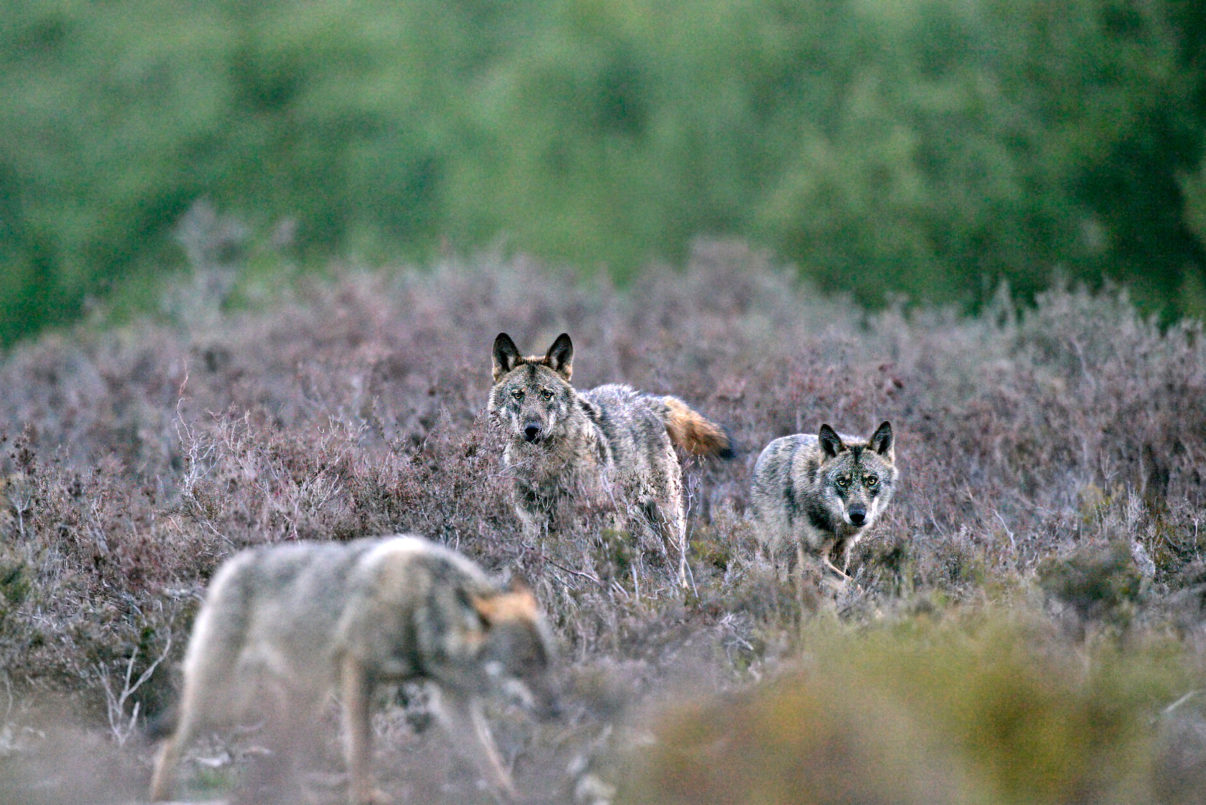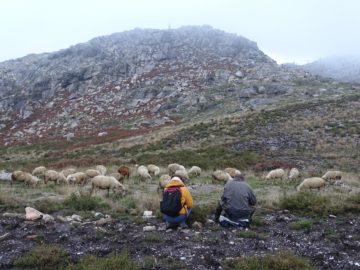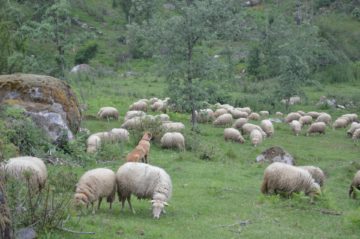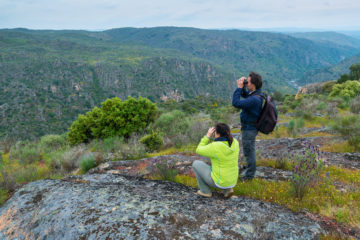In a recent study conducted by Rewilding Portugal and partners within the LIFE WolFlux project, nearly half of interviewees were open to the idea of living alongside the Iberian wolf under certain conditions. Feedback from the study will help the team in their rewilding efforts.

Strained relations
When it comes to wildlife comeback, no animal divides public opinion like the wolf. If measures to support the animal’s return in specific areas are to be successful, this means gauging local people’s attitudes – and taking steps to address concerns and promote coexistence – are absolutely critical. No more so than south of the Douro River in Portugal, where the Iberian wolf today enjoys a precarious existence.
Studies estimate that the Portuguese population of Iberian wolf (a subspecies of grey wolf) currently totals between 250-300 animals, divided in two by the Douro. While the subpopulation north of the Douro is larger and more stable, south of the Douro there are only a handful of scattered packs. A lack of natural prey (such as roe deer) means these packs have no choice but to prey on livestock, which causes conflict with farmers and often results in the animal’s persecution.
Positive first step

To better understand people’s attitudes to the Iberian wolf south of the Douro, and inform measures to support the animal’s existence and comeback, the Rewilding Portugal team conducted an eight-month study of public attitudes, ending in April 2020. Almost half of those interviewed were open to living alongside wolves, but only under certain conditions.
Such conditions included reasonable financial compensation for wolf damage and sufficient availability of habitat and natural prey. This emphasizes the need to improve not only the ecological conditions for the species but also Portugal’s national compensation scheme, which has attracted criticism for being inadequate.
“We now know that many people in communities south of the Douro are open to the idea of living alongside this iconic species,” says Sara Aliácar, Rewilding Portugal’s Conservation Officer. “There are undoubtedly many challenges ahead, but we hope this study is the first step towards improving human-wolf coexistence in the area.”
Support for rewilding measures

The new study, which was carried out by trained interviewers, engaged nearly 120 stakeholders from different communities, including livestock breeders, shepherds, hunting managers, local authorities, conservation practitioners and organisers of nature activities. The semi-structured interviews aimed to identify social barriers to wolves in the region and understand interests and context. Topics such as local knowledge, emotions, beliefs and compensation payments were all up for discussion.
There were more positive outcomes from the study, with almost three-quarters of interviewees supportive of roe deer presence in the area. The Rewilding Portugal team is currently working to improve habitat conditions for roe deer south of the Douro, thereby ensuring there is sufficient wild prey for Iberian wolves and reducing livestock predation.
Most interviewees also had positive attitudes towards the use of livestock guard dogs, as long as such dogs are specialised breeds (such as the native Serra da Estrela and Castro Laboreiro breeds) and well trained. Rewilding Portugal is also rolling out a livestock guard dog programme south of the Douro as part of LIFE WolFlux project.
Seeing the benefits

Although many interviewees demonstrated tolerance towards wolves, less than half identified any benefits associated with their presence. The potential positive impact on wildlife tourism was rarely mentioned.
While tourism around wolves is poorly developed in Portugal, in Spain this is a lucrative and well-established sector, attracting many people to regions such as Sierra de la Culebra. In Portugal, Dear Wolf is one of the few tourism operators that offers guided walks focused on the Iberian wolf. Led by trained biologists, these ensure that the animals are never disturbed. Dear Wolf’s activities are currently focused mostly on areas north of the Douro, but could be expanded south of the river. This would bring income to isolated rural areas and stimulate local economies.
The Rewilding Portugal team is working to promote wolf-related tourism south of the Douro, helping tourism operators to expand their tours and build business plans. Such measures will help to demonstrate that the Iberian wolf can support sustainable, long-term development in some areas.
Collaborative effort
Rewilding Portugal conducted the recent study in collaboration with Clara Espírito-Santo, a human dimensions expert, and Margarida Lopes Fernandes, a biologist from the ICNF (the Institute for Nature Conservation and Forests), who is also a researcher based at the CRIA (the Centre for Research in Anthropology).
It was carried out within the scope of the LIFE WolFlux project, which is working to support the viability of the Iberian wolf subpopulation south of the Douro river.
The project is being coordinated by Rewilding Portugal, in partnership with the University of Aveiro, Rewilding Europe, Zoo Logical and ATNatureza. It is financed by the LIFE Programme of the European Union and co-financed by the Endangered Landscape Programme, which is managed by the Cambridge Conservation Initiative and is funded by Arcadia, a charitable fund of Peter Baldwin and Lisbet Rausing.
Want to know more?


